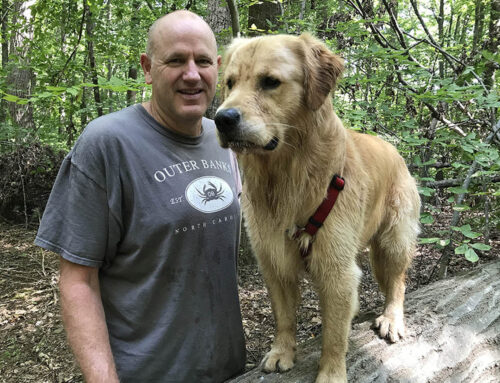
In the campy 1980 comedy, Caddyshack, disheveled groundskeeper Carl Spackler (played by a brilliant[...]

It's not often that a scientist becomes a subject for his own research; even[...]

Sensory deprivation via natural or manmade caves has now become, if not routine, certainly[...]

Using fMRI technology, scientists for the first time have revealed significant - albeit temporary[...]

Why the Best Listeners Live Better Lives
“Frankly, I had never thought of listening as an important subject by itself. But now that I am aware of it, I think that perhaps 80% of my work depends on my listening to someone, or on someone else listening to me.”
Those were the words of a Chicago area manufacturing executive published in the September 1957 edition of the Harvard Business Review. The article had many more quotes just like it.
So here’s a question: what are the chances, during those intervening 67 years, we’ve become better listeners? Conversely, what are the chances the advent of the Internet, social media, smartphones, streaming media, and countless other disruptive forces have made us more or less deaf to each other?
“Most of the successful people I’ve known are the ones who do more listening than talking.” – Bernard Baruch
Might our inability (unwillingness?) to genuinely listen to each other have anything to do with the immense challenges facing our society and the world?
Why Is Listening So Difficult?
Stephen Covey, who spent much of his professional life studying our species in corporate settings, noticed that most people don’t listen to understand – they listen “with the intent to reply.”
According to the International Listening Association (yes, there is such a thing), 75% of us don’t actually listen to what others are saying. If you’re doing the math, that means in a family of four only one of you is actually paying attention during dinner. Or, if you manage a team of 20, at least 15 of your subordinates are tuning you out.
“We have two ears and one mouth, so we should listen more than we speak.” – Zeno of Citium
Why do so many of us struggle to listen?
Because our minds are elsewhere. Bombarded daily with thousands of thoughts; endlessly interrupted by text messages, phone calls, and other digital alerts; constantly distracted by internal and external stimuli (the air temperature, hunger pangs, the need to visit the restroom, etc.), it’s a wonder any of us can focus.
But focus we must, because research shows that good listeners are:
Loved – People who feel listened to feel heeded, respected, and cared for.
Smarter – When we open our mouths, we’re spouting what we already know. When we listen, chances are good we’re going to learn something new.
Strong Leaders & Teammates – Listening means being able to read body language and other subtle cues. The best leaders are keenly attuned to what’s happening in the people around them.
Problem-Solvers – Similarly, listening enables us to pick up on warning signs in others. There’s a reason psychologists are known for listening and rarely talking.
Clever – There’s an old proverb that says the most powerful person in the room is the one who doesn’t speak. They’re able to leverage what they’ve learned while others were busy speaking.
Learning to Listen
Our modern era has sliced and diced listening until it sounds like a slew of different activities – e.g., active listening, mindful listening, conscious listening, and so on. We don’t need new modes of listening anymore than we need multiple kinds of empathy.
“The art of conversation is hearing as well as being heard.” – William Hazlitt
What do we need?
Make Listening a Priority – Consider how you feel when someone truly listens to you. Great, right? So go out and bestow that on others. Listening may be one of the greatest gifts you can give someone.
Eliminate the Noise – When someone is speaking to you, put away the phone and keep your gaze on the speaker and the speaker alone. Don’t allow your eyes – or your mind – to wander.
Prioritize – Not everyone deserves our time and attention. Many people will consume your time with little or nothing to say (or worse, negative words). Don’t be afraid to excuse yourself from these conversations. Remind yourself you’re not being polite by staying put if you’re not actually listening.
Respect Yourself – Treat your time and your attention as the precious commodities that they are. Don’t disappear into social media black holes or conversations filled with gossip. The more you learn to value and listen to meaningful conversation, the easier the process becomes.
We’ll close with this nugget: In his book, In Pursuit of Silence: Listening for Meaning in a World of Noise, author George Prochnik likens our world’s cacophony to diets teeming with processed foods, saturated fats, and sugar. Both, he writes, are terrible for us. “Our aural diet is miserable. It’s full of over-rich, non-nutritious sounds served in inflated portions – and we don’t consume nearly enough silence.”
So lean into silence. And when you listen, listen!





